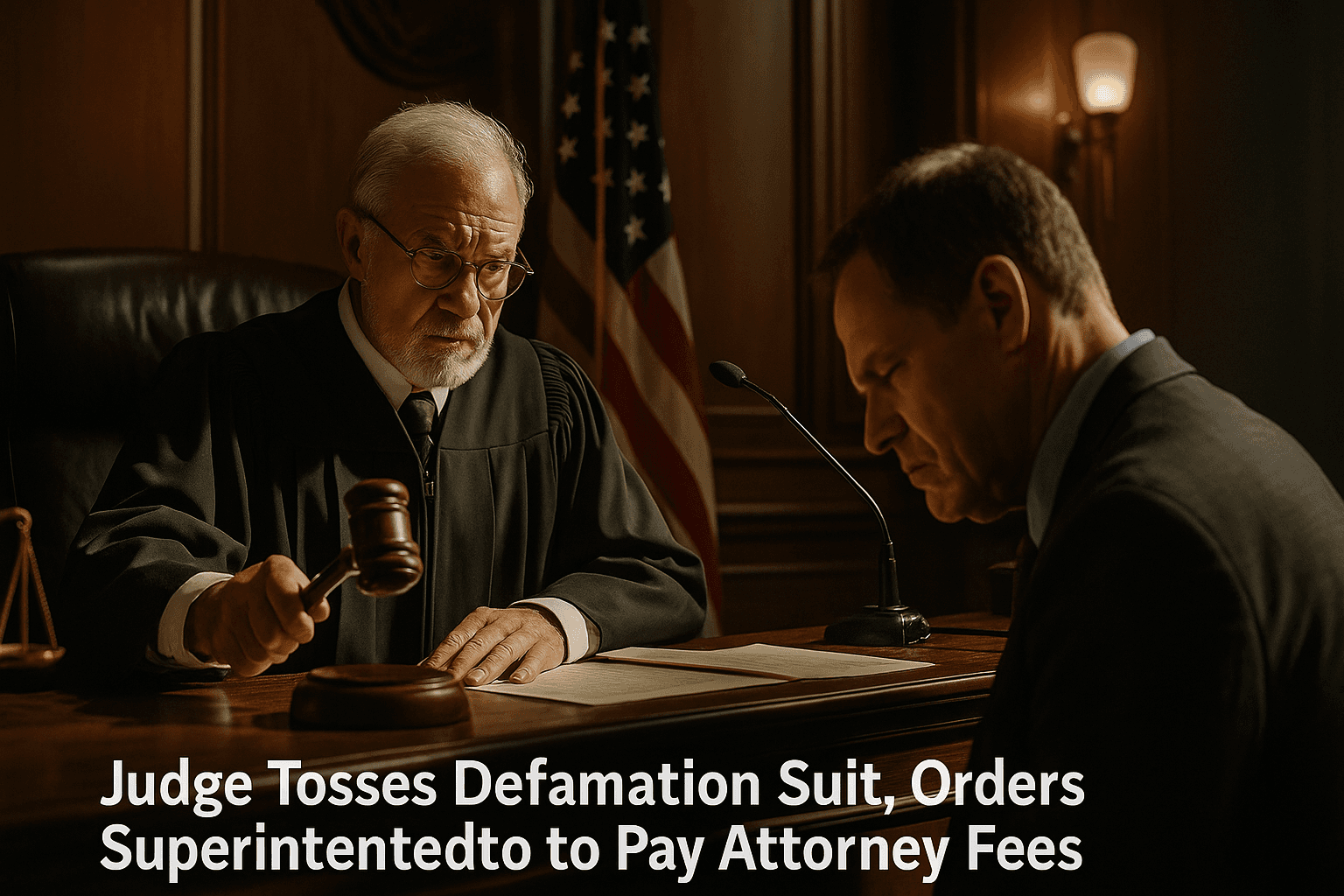Judge Tosses Defamation Suit, Orders Superintendent to Pay Attorney Fees
A 22nd Judicial District judge dismissed a defamation lawsuit brought by Montezuma Cortez superintendent Harry "Tom" Burris against social worker Jonathan "JJ" Lewis, finding Lewis protected by Colorado law after he reported possible student abuse. The ruling, issued November 21, 2025, requires Burris to pay Lewis attorney fees and highlights legal protections for mandatory reporters that matter to local schools and families.
A judge in the 22nd Judicial District dismissed a defamation lawsuit on November 21, 2025, after concluding that social worker Jonathan "JJ" Lewis was shielded by Colorado law when he reported allegations of possible student abuse. The court determined that Lewis is protected under the state anti SLAPP statute and by mandatory reporter immunity, and that plaintiff Harry "Tom" Burris failed to show a reasonable likelihood of prevailing on a defamation claim. The order also requires Burris to pay attorney fees tied to Lewis' special motion to dismiss.
Court documents show the underlying complaint stemmed from allegations about a relationship between a teacher and a student. Investigators ultimately found no evidence of abuse, and Burris resolved a misdemeanor mandatory reporting charge earlier in 2025 through a diversion agreement. The judge's ruling underscores the statutory immunities that Colorado grants to people who report suspected child abuse in good faith, and it affirms the high legal threshold a plaintiff must meet to overcome those protections.
For residents of Dolores County, where schools and social services are tightly knit parts of the local fabric, the decision carries practical implications. The legal protection for mandatory reporters is intended to encourage people to report concerns without fear of being sued, which supports broader public health goals of early identification and intervention for children at risk. At the same time the ruling raises questions about accountability and the documentation and training that school staff and social workers need to follow to ensure investigations are thorough and fair.

The fee award may also affect how future disputes between school officials and reporters are resolved, particularly in rural communities where legal resources are limited. Local policymakers and education leaders may see this case as a prompt to review reporting policies, improve record keeping and training, and ensure that families have access to services and clear communication during investigations. The decision will likely influence how community members balance the need to protect children with the rights and reputations of school personnel in the region.

